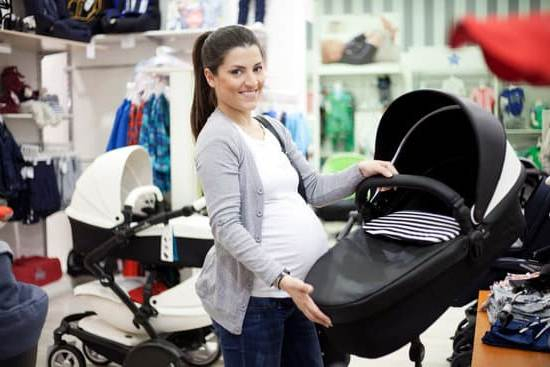A crisis pregnancy center, also known as a pregnancy resource center or pregnancy care clinic, is a facility that offers support and resources to women facing unplanned pregnancies. These centers are often run by pro-life organizations and provide assistance to women who are considering their options regarding their pregnancy. Understanding Crisis Pregnancy Centers is essential in order to comprehend the impact they have on women’s health and the controversies surrounding their services.
Crisis Pregnancy Centers offer a wide range of services aimed at helping women navigate through their unplanned pregnancies. These services can include free pregnancy tests, counseling, ultrasounds, material assistance such as baby clothing and supplies, and referrals for medical care or adoption services. Despite the intention of providing support during an uncertain time, these centers have been the subject of controversy due to the information and guidance they offer to women.
The controversies surrounding Crisis Pregnancy Centers have sparked debates regarding their impact on women’s health as well as legal and ethical considerations. Critics argue that some centers may provide misleading or incomplete information about reproductive health, abortion options, and contraception methods. It is important to examine these issues in order to understand the full scope of Crisis Pregnancy Centers and how they affect the women they serve.
Services Offered by Crisis Pregnancy Centers
Crisis Pregnancy Centers (CPCs) are non-profit organizations that provide a variety of services for women facing unplanned pregnancies. These centers are often operated by pro-life organizations and are dedicated to providing support, resources, and alternatives to abortion for women who may be considering terminating their pregnancies. The services offered by CPCs aim to empower women in making informed decisions about their pregnancies and provide practical assistance during a challenging time.
Support and Counseling
One of the primary services offered by Crisis Pregnancy Centers is emotional support and counseling for women facing unplanned pregnancies. Trained counselors and volunteers provide a safe and non-judgmental space for women to discuss their options, fears, and concerns. This compassionate approach helps women navigate through the complexities of their situations while feeling supported and understood.
Material Assistance
Crisis Pregnancy Centers often provide material assistance such as maternity clothes, baby supplies, diapers, formula, and other necessities for expectant mothers in need. By offering these tangible resources, CPCs aim to alleviate some of the financial burdens associated with pregnancy and parenthood, thus empowering women to choose life-affirming options.
Educational Programs
Many Crisis Pregnancy Centers offer educational programs on parenting skills, childbirth preparation, infant care, and healthy relationships. These programs equip expectant mothers with valuable knowledge and skills that can help them make informed decisions about their pregnancies and prepare for parenthood. Additionally, some CPCs also provide educational resources on sexual health, contraception alternatives, and adoption options.
Overall, the services offered by Crisis Pregnancy Centers play a significant role in supporting women during unplanned pregnancies while promoting life-affirming alternatives. While the nature of these services may be controversial to some, many women have found solace and practical assistance through CPCs during an uncertain time in their lives.
Controversies Surrounding Crisis Pregnancy Centers
Crisis Pregnancy Centers (CPCs) have been the subject of much controversy, with critics accusing them of providing misleading information and using deceptive tactics to dissuade women from seeking abortions. Many CPCs are affiliated with religious organizations and anti-abortion groups, leading to concerns about the impartiality and accuracy of the information they provide.
Some of the controversies surrounding Crisis Pregnancy Centers include:
- Misleading or false information: Critics argue that some CPCs provide women with inaccurate or misleading information about abortion, contraception, and reproductive health. This can lead to confusion and distress for women seeking unbiased guidance in making important decisions about their pregnancies.
- Use of deceptive tactics: Some CPCs have been accused of using deceptive tactics to attract women seeking abortions, such as advertising themselves as medical clinics or posing as comprehensive reproductive health centers. This can result in women receiving biased counseling that does not fully address all their options.
- Lack of regulation: Unlike medical facilities, many Crisis Pregnancy Centers are not subject to the same regulations and oversight. This lack of regulation raises concerns about the quality and accuracy of the services they offer to pregnant women in need.
Despite these controversies, many Crisis Pregnancy Centers continue to operate and serve their communities. It is important for women to be aware of the potential issues surrounding CPCs and seek out reliable sources of information when facing an unplanned pregnancy.
Impact of Crisis Pregnancy Centers on Women’s Health
Crisis Pregnancy Centers (CPCs) provide women with various services, including counseling and support, as they navigate the difficult decision-making process during pregnancy. However, the impact of these centers on women’s health is a topic of debate and concern among healthcare professionals and advocates for reproductive rights.
Quality of Information Provided
One key issue concerning CPCs is the quality of information that women receive. Some CPCs have been criticized for providing misleading or inaccurate information about abortion, birth control, and sexually transmitted infections. This misinformation can have a detrimental impact on women’s health as it may prevent them from making fully informed decisions about their reproductive choices.
Delay in Accessing Care
Another potential impact of CPCs on women’s health is the delay in accessing necessary medical care. While some CPCs offer ultrasounds and prenatal vitamins, they do not provide comprehensive medical care. Women who seek help from these centers may experience delays in receiving appropriate prenatal care or may be dissuaded from seeking medically necessary interventions due to the center’s anti-abortion stance.
Psychological Impact
The psychological impact of visiting a CPC must also be considered when assessing its effect on women’s health. Women facing crisis pregnancies are often vulnerable and emotionally distressed. Some critics argue that the counseling provided at CPCs can be coercive or manipulative, which may have negative psychological effects on women, particularly if they feel pressured into making certain decisions about their pregnancies.
Legal and Ethical Considerations of Crisis Pregnancy Centers
Crisis pregnancy centers (CPCs) operate with the mission to provide support, resources, and counseling for women facing unplanned pregnancies. However, there are legal and ethical considerations that come into play when discussing these centers. One of the main concerns is whether or not CPCs provide accurate and unbiased information to their clients. Some critics argue that CPCs often prioritize promoting adoption or carrying the pregnancy to term over providing comprehensive information about all available options, including abortion.
Another legal and ethical consideration is related to the qualifications of the staff at crisis pregnancy centers. In some cases, individuals without proper medical or counseling credentials may be giving advice or medical information to women seeking help at these centers. This raises questions about the quality and accuracy of the information being provided, as well as potential liabilities if misinformation leads to negative health outcomes for clients.
Additionally, there can be concerns about the religious affiliations of crisis pregnancy centers impacting the care provided to women. Some CPCs are associated with religious organizations that may have strict beliefs about reproductive rights, which can influence the guidance given to pregnant individuals. Ensuring that women receive non-biased, evidence-based information that aligns with their individual beliefs and values is a critical ethical consideration for crisis pregnancy centers.
| Legal Issues | Ethical Considerations |
|---|---|
| Accurate and unbiased information | Qualifications of staff |
| Religious affiliations | Potential liabilities |
Success Stories From Crisis Pregnancy Centers
Crisis Pregnancy Centers (CPCs) have been instrumental in providing valuable support and guidance to women facing unplanned pregnancies. These centers are usually run by religious or anti-abortion organizations and focus on providing assistance to women who may be considering options other than abortion. Many of these centers have successfully helped numerous women navigate through their crisis pregnancies, offering them a variety of resources and emotional support.
One success story from a Crisis Pregnancy Center involves Jessica, a young woman who found herself pregnant and unsure of what to do next. Feeling overwhelmed and scared, she reached out to her local CPC for help.
The center provided Jessica with free pregnancy testing, counseling services, and information about her options. Through the support she received from the staff at the CPC, Jessica was able to make an informed decision about her pregnancy, ultimately choosing to parent her child with the help of the resources provided by the center.
Another inspiring success story comes from Maria, who was faced with a crisis pregnancy and was considering abortion as her only option. After visiting a Crisis Pregnancy Center, Maria received counseling that helped her explore alternative choices. With the assistance of the center’s resources and support system, Maria decided to choose adoption for her baby. The CPC connected her with an adoption agency and continued to offer emotional support throughout her pregnancy journey.
These success stories highlight the important role that Crisis Pregnancy Centers play in empowering women during difficult times. By providing nonjudgmental support, resources, and information about various options, these centers continue to make a positive impact on women facing crisis pregnancies across communities.
Support and Resources Available at Crisis Pregnancy Centers
Crisis pregnancy centers (CPCs) offer a variety of support and resources to women facing unplanned pregnancies. These centers are typically run by pro-life organizations and aim to provide alternatives to abortion, as well as emotional and practical assistance to women in need. Here are some of the support and resources available at crisis pregnancy centers:
1. Counseling: CPCs offer counseling services to help women navigate their options and make informed decisions about their pregnancies. Trained counselors provide non-judgmental support and guidance, addressing the emotional, psychological, and spiritual aspects of the woman’s situation.
2. Material support: Many crisis pregnancy centers provide material assistance such as free baby supplies, maternity clothes, and other essential items for new mothers. This can ease the financial burden on women who may be unsure about how they will afford to care for a child.
3. Referrals: Crisis pregnancy centers often have partnerships with community organizations and resources that can further assist women in need. This may include referrals for medical care, housing assistance, parenting classes, or adoption agencies.
The presence of crisis pregnancy centers has sparked controversy due to concerns about misleading or manipulative tactics used to dissuade women from seeking abortions. Critics argue that these centers often prioritize ideology over comprehensive medical information and may perpetuate stigma around reproductive health choices. However, for many women facing unplanned pregnancies, crisis pregnancy centers offer valuable support and resources during a challenging time.
As such centers continue to evolve and adapt in response to changing societal attitudes toward reproductive rights, it remains important for them to uphold ethical standards in their practices while also providing necessary resources for women in need.
The Future of Crisis Pregnancy Centers
In conclusion, crisis pregnancy centers have been a significant resource for women facing unplanned pregnancies, providing a multitude of services and support. While controversies have surrounded these centers, their impact on women’s health cannot be ignored. As the future of crisis pregnancy centers continues to evolve, it is important to consider the trends and developments that will shape their role in supporting women during times of crisis.
One trend that is likely to shape the future of crisis pregnancy centers is the expansion of services beyond just pregnancy support. Many centers are beginning to offer a wider range of resources such as parenting classes, counseling services, and access to affordable healthcare. This broader approach allows them to address not only the immediate crisis of an unplanned pregnancy but also the long-term needs of women and families.
Another development that may influence the future of crisis pregnancy centers is the increasing emphasis on legal and ethical considerations. With ongoing debates about the information provided at these centers and their stance on reproductive rights, there may be a shift towards standardizing guidelines and regulations for these facilities. This will be crucial in ensuring that women receive accurate and unbiased information when seeking help at a crisis pregnancy center.
As we look ahead to the future of crisis pregnancy centers, it is clear that they will continue to play a significant role in supporting women during challenging times. The success stories from these centers serve as a testament to their impact on individual lives. By remaining attentive to emerging trends and developments while upholding legal and ethical standards, crisis pregnancy centers can continue to be an invaluable resource for women in need.
Frequently Asked Questions
How Do You Know if You Are in a Crisis Pregnancy Center?
You can identify a crisis pregnancy center by its name, which often includes terms like “pregnancy resource center” or “women’s health clinic.” These centers may also advertise free pregnancy tests and counseling.
What Is Another Name for a Crisis Pregnancy Center?
Another name for a crisis pregnancy center is “pregnancy resource center.” This term may be used to attract individuals seeking resources and support during unplanned pregnancies.
What Are the Public Health Risks of Crisis Pregnancy Centers?
There are public health risks associated with crisis pregnancy centers, including providing inaccurate or misleading information about reproductive health, contraception, and abortion. This can have serious consequences for individuals seeking legitimate medical care.

Welcome to my fertility blog. This is a space where I will be sharing my experiences as I navigate through the world of fertility treatments, as well as provide information and resources about fertility and pregnancy.





